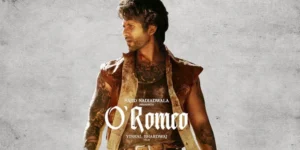
In a landmark ruling that is set to redefine the legal framework for celebrity rights in the digital age, the Delhi High Court has passed a significant order protecting the personality rights of Bollywood icon Aishwarya Rai Bachchan. The court’s decision, which came in response to a suit filed by the actress, provides a strong legal shield against the unauthorised commercial exploitation of her image and persona, including the creation of harmful, AI-generated pornographic content.
The order, passed by Justice Tejas Karia on September 9 and made public on Thursday, marks a major victory for personal dignity and reputation in a world increasingly plagued by digital misuse. The court’s unequivocal stance sends a clear message that such exploitation will not be tolerated.
Misuse and the Rise of AI-Generated Content
The suit filed by Aishwarya Rai Bachchan highlighted several instances of her name, image, and persona being misused across various online platforms without her consent. The plea specifically brought to the court’s attention a grave and alarming issue: the use of artificial intelligence and deepfake technology to create sexually explicit and pornographic content by superimposing her face onto manipulated videos.
The court, in its order, noted that such unauthorized exploitation “not only causes financial detriment to the concerned individual but also affects her dignity, reputation, and goodwill.” It further stressed that courts “cannot turn a blind-eye” to the unauthorized exploitation of personality rights. This ruling is a crucial step in the ongoing battle against the misuse of AI for creating deepfake and malicious content, which has become a growing concern for public figures and private citizens alike.
The suit also addressed the commercial misuse of her persona, pointing out websites and companies that were selling merchandise, such as mugs and T-shirts, with her name and image, and even fraudulent entities that were falsely listing her as a chairperson to mislead the public. The court’s comprehensive order restrains all such defendants, including unnamed entities, from any form of exploitation.
The Legal Team Behind the Victory
The successful outcome of this case is a testament to the diligent work of the legal team. The landmark order was secured by a team that included legal stalwarts Ameet Naik and Pravin Anand. This win marks a significant achievement for them, as they have been instrumental in securing “back-to-back landmark orders” that safeguard the personality rights of celebrities against digital exploitation.
Their legal strategy, which focused on the infringement of not only commercial rights but also the fundamental right to dignity, resonated with the court. The case has set a crucial precedent, showing that legal recourse is available and effective in combating the new-age challenges posed by AI and digital technology. The legal community has hailed the judgment as a well-reasoned and necessary step to keep pace with technological advancements and protect individuals from digital harm.
A Precedent for the Digital Age
This ruling is particularly significant as it sets a powerful precedent for future cases involving personality rights. The court has clearly established that a celebrity’s persona is a valuable asset that cannot be exploited without their express permission. Furthermore, the order’s application to “John Doe” defendants—unidentified individuals—is a crucial element that allows for action against anonymous online perpetrators.
In a related development, Abhishek Bachchan has also moved the Delhi High Court for the protection of his personality rights against similar misuse like Aishwarya Rai Bachchan. The court has already granted him an interim injunction in a separate, but similar, case, further strengthening the legal position of the celebrity couple.
The Delhi High Court has directed the Union Ministry of Electronics and Information Technology and other government departments to ensure that all infringing URLs identified in the plea are blocked and disabled. It has also ordered online platforms like Google and e-commerce sites to take down the specified content within 72 hours, reinforcing the court’s firm stance against digital infringement.
The order marks a watershed moment in India’s legal landscape, providing a much-needed legal framework to address the complexities of personality rights in the age of generative AI and deepfake technology. It underscores the judiciary’s commitment to protecting the dignity and reputation of individuals in the ever-evolving digital realm.




